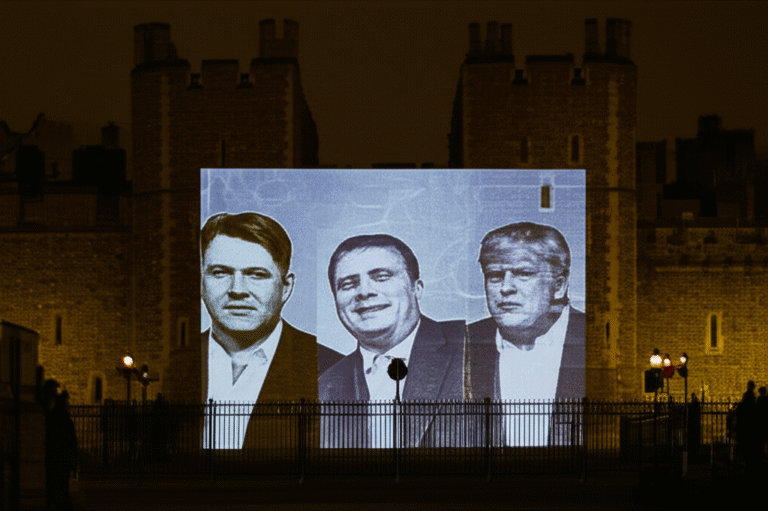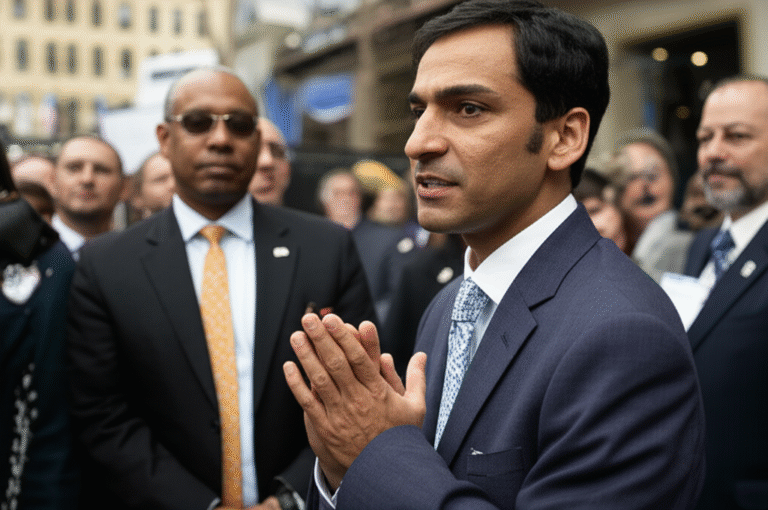
The tragic death of Iryna Zarutska in Charlotte has brought renewed attention to cashless bail policies and their potential impact on public safety. Decarlos Brown Jr., the individual charged with stabbing the 23-year-old Ukrainian refugee to death on a train, had an extensive criminal history, with at least 14 arrests in North Carolina for crimes ranging from assault and firearms possession to felony robbery and larceny, dating back to 2007, as reported by the New York Post. Despite this documented record of violence and mental illness, Brown was reportedly released on a “written promise” to appear in court, a practice central to contemporary bail reform debates. This case has intensified scrutiny on progressive policies that critics argue allow individuals with significant criminal pasts to remain free, potentially jeopardizing community safety.

Brown’s repeated encounters with the law, spanning over a decade, illustrate a pattern of alleged criminal activity that, according to some, should have prevented his release. His ability to be freed on cashless bail, a system designed to move away from monetary requirements for release, has sparked widespread concern. Critics argue that such progressive, “criminals-first” policies often leave victims feeling marginalized, watching perpetrators walk free or receive reduced sentences. The question of how many assault victims may have previously sat in court, hoping Brown would be held accountable for his alleged past crimes, underscores the broader anxieties surrounding these reforms.
Scrutiny on Progressive Bail Policies
The implementation of cashless bail systems has become a significant point of contention in the ongoing discourse about criminal justice reform. While proponents, like Insha Rahman of Vera Action, advocate for these systems based on “basic fairness” to prevent the incarceration of individuals simply for being unable to afford bail, critics vehemently question the definition of “fairness.” They argue that such policies often neglect the safety and well-being of potential victims and the community at large. The release of individuals with a history of serious offenses, particularly when mental illness is also a factor, through a mere written promise, is seen by many as a critical flaw that undermines the core function of the justice system to protect citizens. This contentious balance between ensuring equity for alleged assailants and guaranteeing public safety continues to fuel a nationwide debate.
Presidential Action on Bail Reform
In response to these growing concerns, President Donald Trump has announced plans for a new executive order aimed at addressing perceived failures in bail reform. He has specifically directed Attorney General Pam Bondi to compile, within 30 days, a comprehensive list of all jurisdictions that have implemented progressive cashless bail policies. This move indicates a federal intent to identify and track the prevalence of these systems across the nation. Furthermore, President Trump instructed other federal agencies to identify which federal grants and contracts could be suspended in jurisdictions that maintain these policies, as reported by Fox News. This strategic use of federal funding is intended to exert pressure for policy changes. President Trump articulated his rationale within the order, stating:
“As president, I will require commonsense policies that protect Americans’ safety and well-being by incarcerating individuals who are known threats.”
This strong statement reflects a policy direction focused on the preventative incarceration of individuals deemed dangerous, challenging the underlying principles of many current bail reform initiatives.
The Debate Over Fairness and Community Protection
The philosophical underpinnings of bail reform, particularly the shift to cashless systems, are frequently framed around achieving “basic fairness.” Insha Rahman, Vice President of Advocacy and Partnerships at Vera Action, highlights this justification, asserting that the movement away from money-bail aims to create a more equitable justice system. This perspective argues against the concept that an individual’s financial status should determine their pre-trial freedom, emphasizing the rights and fair treatment of those accused of crimes.
However, the question posed by critics—”Fairness to whom, exactly?”—strikes at the heart of the controversy. For victims like Iryna Zarutska and countless others who experience fear after their assailants are released with only a “promise” to return to court, the concept of fairness takes on a different meaning. Critics contend that victims are too often dismissed as an “afterthought,” with the lion’s share of concern and attention directed toward alleged assailants. This ideological clash underscores a fundamental tension between liberal causes advocating for criminal justice reform and what some perceive as necessary “common sense” measures to ensure the safety and security of communities.
Charlotte Mayor Revises Stance on Tragic Incident
Charlotte Mayor Vi Lyles initially responded to Iryna Zarutska’s tragic murder with a statement to WSOC-TV reporter Joe Bruno, framing the situation as one that “sheds light on problems with society safety nets related to mental health care and the systems that should be in place.” She added that “We will never arrest our way out (of) issues such as homelessness and mental health,” an approach that drew public criticism for seemingly deflecting responsibility from judicial failures.

Following significant public outcry, Mayor Lyles subsequently revised her position. In a social media post, she expressed deeper reflection on the “horrific and senseless loss,” stating:
“As I reflect on the tragic murder of Iryna Zarutska, my heart continues to go out to her family and our community as we try to make sense of this horrific and senseless loss.”
Crucially, she then directly attributed blame to systemic failures, declaring, “This was a tragic failure by the courts and magistrates. Our police officers arrest people only to have them quickly released, which undermines our ability to protect our community and ensure safety.” Her revised comments acknowledged the critical role of judicial decisions in safeguarding communities and underscored the point that criminals are not victims.
Key Facts Regarding the Case and Policies:
- Decarlos Brown Jr. had at least 14 prior arrests in North Carolina, dating back to 2007, before being charged in Iryna Zarutska’s death.
- He was released on a “written promise” to appear in court, despite a history of violence and mental illness.
- President Donald Trump announced an executive order to compile a list of cashless bail jurisdictions and identify grants for suspension.
- Charlotte Mayor Vi Lyles revised her initial statement to criticize “tragic failure by the courts and magistrates” for releasing suspects.
- Advocacy groups like Vera Action support cashless bail as a measure of “basic fairness.”
Background to the Policy Debates
The tragic events surrounding Iryna Zarutska’s death and the alleged actions of Decarlos Brown Jr. are deeply intertwined with a long-standing and evolving national conversation about criminal justice policies. Brown’s extensive rap sheet, detailing at least 14 arrests in North Carolina for a range of serious offenses since 2007, including assault, firearms possession, felony robbery, and larceny, provides a critical context. This history underscores the recurring challenge faced by legal systems in managing individuals with patterns of criminal behavior, particularly when factors like documented mental illness are present. The decision by a magistrate to release such an individual on a mere “written promise” to appear in court, rather than requiring traditional bail, reflects a policy shift that has been championed by various progressive movements.
The underlying rationale for moving away from traditional money-bail systems, as articulated by proponents such as Vera Action, is rooted in the principle of “basic fairness.” This perspective argues that the ability to pay bail should not dictate an individual’s pre-trial freedom, aiming to create a more equitable system for all, regardless of economic status. However, this progressive stance has been met with significant opposition, which asserts that such reforms can inadvertently compromise public safety by allowing individuals with known violent tendencies to return to communities. The conflict between these two viewpoints—balancing the rights and fair treatment of alleged assailants against the imperative to protect citizens from harm—forms the crucial background against which recent events and policy discussions are unfolding.
Potential Future Directions and Public Scrutiny

The fallout from the Charlotte incident and the broader critiques of cashless bail suggest several potential avenues for future policy and public engagement. President Donald Trump’s announced executive order represents a significant federal response, signaling a proactive stance against jurisdictions that have implemented progressive bail reforms. The directive to Attorney General Pam Bondi to create a list of these jurisdictions within 30 days is a clear indicator of forthcoming federal action. Furthermore, the instruction for federal agencies to identify grants and contracts for suspension suggests a mechanism to financially incentivize policy changes at the state and local levels. This federal pressure could compel jurisdictions to reevaluate their bail practices, potentially leading to modifications or reversals of current reforms to avoid economic penalties.
Locally, the evolution of Charlotte Mayor Vi Lyles’s public statements illustrates the power of public outcry and critical reflection in shaping leadership’s perspectives. Her shift from emphasizing broader societal issues to directly acknowledging a “tragic failure by the courts and magistrates” highlights a growing demand for accountability within the judicial system. This shift suggests that other leaders overseeing similar progressive policies may face increasing pressure to address the practical implications of releasing individuals with violent histories. The ongoing tension between advocating for reform and ensuring the physical safety of communities will likely remain a central theme in political discourse. The incident involving Iryna Zarutska serves as a potent reminder of the profound impact of these policy decisions on individuals and public trust [Source].






